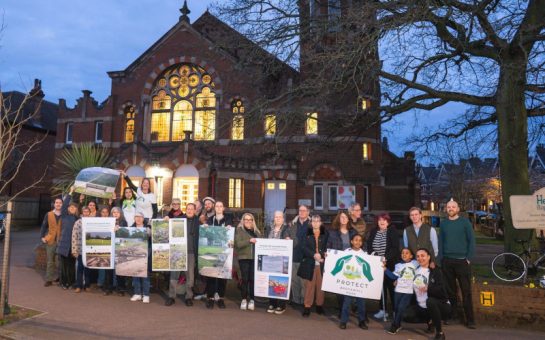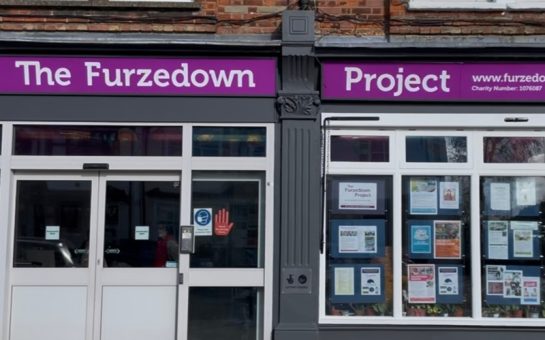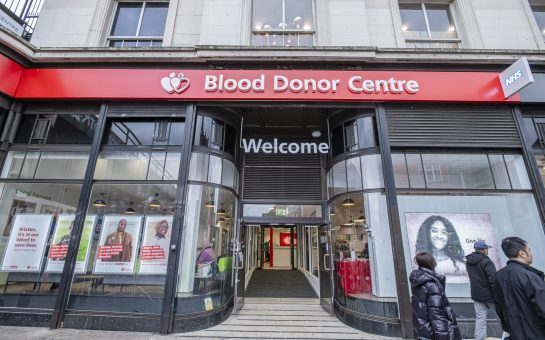SW Londoner reporter Antony Peyton looks at how community projects in places such as Brixton are reigniting community spirit.
Within the heart of every community there are those people who seek to abuse or use it for their own selfish ends. This may range from violent crime to the ignorant and indolent act of littering.
Yet there are others, the unsung heroes, who give up their time and expend vast amounts of energy to give something back and try to improve their local neighbourhood.
One example of this is a project in Brixton, the Transition Town Brixton (TTB), which is a community-led initiative, as part of Lambeth Council’s BIG Difference Campaign.
Lambeth’s campaign, launched in January 2010, wants to tap into people’s willingness to embrace, contribute and change this large expanse of London.
It will run for a few years, according to the council, and will focus on three main issues – community safety, enviro-crime and helping the environment.
The TTB has received money from the council and been involved in meetings with the chief executive, Derrick Anderson CBE, council officers and some of the 63 elected councillors.
It has a vision of a ‘low energy/carbon future’ and all of its 60 volunteers have devoted thousands of hours of unpaid work.
Duncan Law, a 52-year-old actor/director, has been living in Brixton for 24 years and acts as a co-ordinator for TTB.
He said: “Lambeth Council is very forward thinking and they are funding people’s passions and facilitating their interests. They help the local community get together.”
He added: “There were 40 redundant garages at Paulet Road and the council thought they were an administrative nightmare and was going to forget about them.
“But we turned them into workspaces for bike projects and for recycling wood, paper, jewellery and fabrics. People can enjoy their interests and in some cases turn it into a living.”
Mr Law was full of praise for Sue Sheehan, Green Community Champions Officer at Lambeth Council, saying she was a key part of the campaign.
It was Mrs Sheehan who invented the idea of the ‘Brixton Community Draft Busters’. Mr Law said six energy advisors were given training and employed to drop off leaflets and go cold calling on people’s doors.
They would then dispense practical advice to residents on saving heating bills. Because they were engaging the community, it meant people got to know each other better.
All across Lambeth other people are taking the initiative. On the Cowley Food Farm in SW9, Drew Woodhouse, a 34-year-old environmental outreach worker, is passionate about getting people to be self-sufficient by growing their own food and to enjoy the outdoors to improve their health.
The ‘farm’ uses a community space outside a block of flats on the Cowley Estate and the residents have fruit trees, flower beds, herbs, a barbeque area and a picnic table.
Mr Woodhouse received £1,000 of council funding from the BIG Difference Campaign to move all his materials into the site and get the farm working.
He said: “Once it was finished I showed people how to use it and they were surprised when I told them it was theirs.
“I want to be a catalyst for change and believe if people get together and eat together – they get to know each other better. It doesn’t matter what job that person does – they see them as another human being.”
Mr Woodhouse said the council are doing a very good job and they gave him the platform to do this.
He explained that in Wandsworth, which has no campaign, there are five food growing projects. In comparison, Lambeth has 120 such projects.
Critics may argue the council is just using people to do work for free and save costs in these times of austerity. But these types of organisations do receive funding and are run by volunteers who were not forced to help.
Last year Lambeth Council also declared its ambition to become a co-operative council as it seeks to expand and develop the BIG Difference Campaign further.
Their aim is to “get people more involved and have control of the services they use and the places where they live by putting council resources in their hands.”
As local councils across the land are forced to make more cuts, there may well be more stories of communities and councils forging stronger links.




